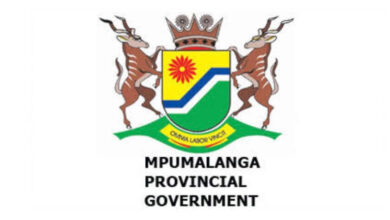10 Tips To Writing A Winning Funding Proposal

It is important to know how to write a funding proposal as this is your chance to convince potential funders that your business is run efficiently, that it is accountable and that it can achieve the objectives it sets.
Check out the following 10 tips to writing a winning funding proposal.
1. Know Your Audience
Who are you writing to? A nameless, faceless committee? A specific person? An organization? Once you have an idea of who is going to be reading your proposal, tailor your voice, tone, style, format, and content accordingly. For example, if you are a nonprofit seeking business sponsors, use plenty of quantitative data to persuade the reader that you are a good investment. If you are writing a research grant proposal, adopt the field’s unique language and maintain an academic voice.
2. Introduce Yourself
Remarkably, many people struggle with this simple and essential detail. When I say introduce yourself, I mean state your name, professional or institutional affiliation, position or title, and reason for writing. You don’t need to tell your life story, favorite movie, or your dog’s name. This should be 1-3 sentences of who you are as (and only as) relevant to the proposal.
3. Succinctly Explain What You Do
Similarly, you need establish some context for the request you are about to make by providing a brief, but specific, description of what you do, with a little history thrown in:
My name is Jennifer Hansen and I am the Executive Director of Meals for Kids, a nonprofit organization serving King County’s public elementary schools’ students who rely on free lunches. I founded Meals for Kids in 2010 after learning nearly 300 students were going hungry during the day, resulting in lower test scores, behavioral problems, and an overall lack of energy. In the past 4 years, we have provided 5,442 meals for the district’s qualifying students at no cost to their families.
4. What Have You Already Accomplished
Numbers, numbers, numbers! How much money have you already raised? What goals have you set and attained (or better yet, exceeded)? What sponsors do you already have on board, and what does their combined investment amount to? What kinds of results have your efforts yielded? When I’m writing a letter for a business or a nonprofit to use, I want to be able to cite hard numbers.
5. State Your Need And Its Urgency
Why should they give YOU the money? No, really. Sit down and think about it. Why does your business, organization, nonprofit, or academic project deserve the money more than anybody else’s? Situate the significance of your proposal in immediate and long-term contexts. Consider the micro and macro-levels of your project’s potential impact.
6. Detail How The Money Will Be Used
Don’t write the letter or proposal before you have an itemized budget or description for allocating funds as a reference. If someone is going to give you money – especially a large sum – you need to be prepared to explain precisely how you are going to spend it.
7. What Does The Funder Get Out Of It?
For my business clients, I ask them to reflect on what they can do for the sponsor. Are you going to serve as an ambassador for the funder’s business, organization, or institutional affiliation? Will you invite them to an event as a honored guest or speaker? Can you promise to hang, publicize, or pass out promotional materials with your sponsor’s logo and recognized contribution?
8. Situate In a Broader Context
I can’t stress this enough: in addition to explaining what you do, how you do it, and why you do it, you must explicitly ground your work in a broader context. Many times we work in niches – and sure, it’s important to carve out a small slice of a big problem so that you can realistically tackle the issue in a real and practical way. However, that niche has to mean something in the broader scheme of things.
9. Be structured
If your proposal is well-thought out and ordered, it says a great deal about how you’ll run your business. The converse is also true. Be technically detailed and correct. This means you have to have done your homework.
10. Be persuasive
The aim of writing a funding proposal is to get someone to agree to give you money. Be brief and to the point. Convey the required information in a concise manner.





